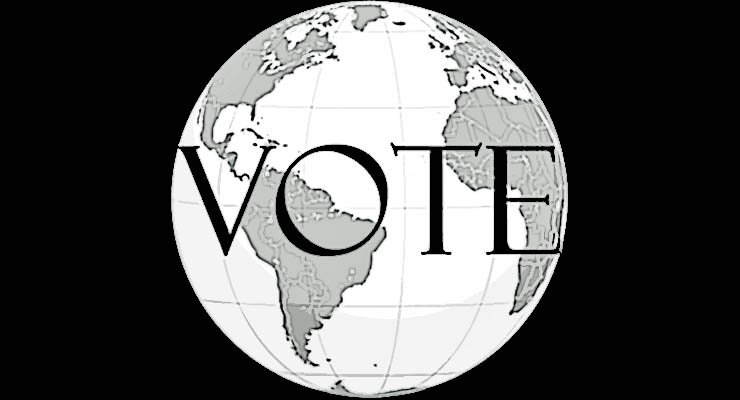
From the National Endowment for Democracy
How is the decline of established parties transforming Latin American democracy—and beyond? When democracies come under pressure, what forces and conditions are key to their survival? Why are authoritarian regimes turning to regional organizations as a tool for bolstering fellow autocrats?
In the October 2018 issue of the Journal of Democracy, a set of seven articles investigates the trends underlying recent changes in Latin America’s political landscape—from the sweeping victory of leftist candidate Andrés Manuel López Obrador in Mexico’s July elections (Kenneth F. Greene and Mariano Sánchez-Talanquer) to the impeachment of President Pedro Pablo Kuczynski in Peru (Alberto Vergara). The cluster on “Latin America’s Shifting Politics” also features:
- Steven Levitsky with an assessment of democracy’s overall fortunes in the region;
- Forrest D. Colburn and Arturo Cruz S. on Costa Rica;
- Laura Gamboa on Colombia;
- Carlos de la Torre on Ecuador; and
- Jean-Paul Faguet on Bolivia.
- Also in the October 2018 issue:
- Francis Fukuyama makes a case for the enduring salience of national identity:
- Tom Ginsburg and Aziz Huq show how the study of “democratic near misses” can shed light on the factors that help democracies to endure under stress;
- Sophie Lemière considers the unlikely alliance of an ex-authoritarian and a former political prisoner that led to Malaysia’s recent electoral earthquake;
- Richard Wike and Janell Fetterold analyze trends in global public support for liberal democracy—and its rivals;
- Christopher Carothers argues that competitive authoritarian regimes have shown themselves to be remarkably unstable;
Alexander Libman and Anastassia V. Obydenkova examine the goals, methods, and implications of regional organizations founded and dominated by autocracies; and - Tarek Masoud reviews Safwan M. Masri’s Tunisia: An Arab Anomaly.
For the complete Table of Contents, visit www.journalofdemocracy.org.

Leave a Reply